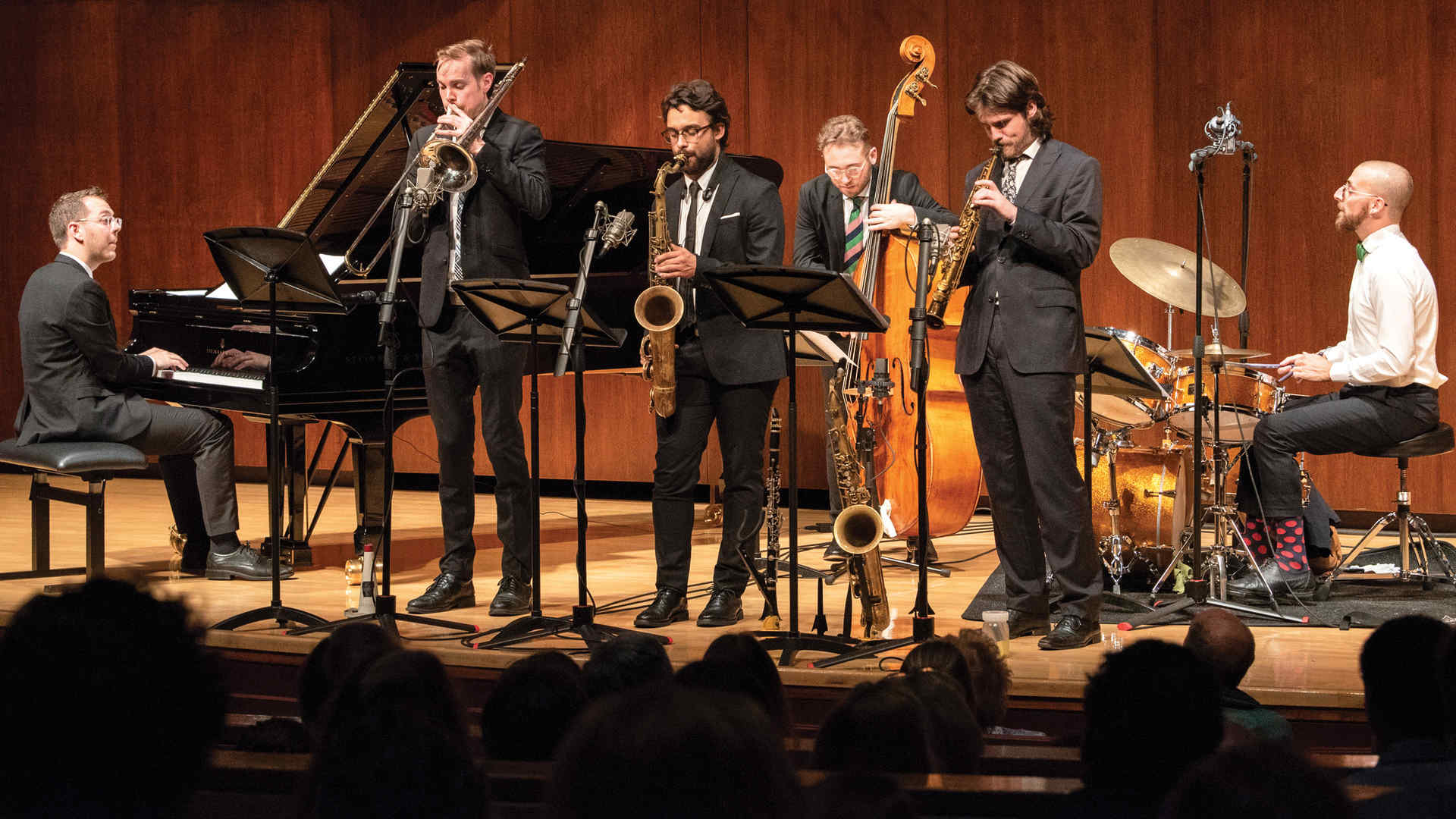
The jazz ensembles celebrate musicians with a political consciousness in a Dizzy's concert
“In many music school settings, the teaching focus is simply on the notes and rhythms. What are the chords? Is the melody challenging? This concert, and the overall focus of Juilliard Jazz is to understand the purpose for which art is created as well as its social and historical context,” Aaron Flagg (BM ’92, MM ’93, trumpet), chair and associate director of Juilliard Jazz, is explaining the rationale behind the February 18 jazz ensembles concert called Power to the People: Rahsaan Roland Kirk (1935-77), Eddie Harris (1934-96), and Wes Montgomery (1923-68). The concert, which takes place at Dizzy’s Club, at Jazz at Lincoln Center, celebrates the music by and associated with these three—respectively a woodwind specialist, tenor saxist, and guitarist—who all were active in the Civil Rights and social justice movements of the late 1960s and early ’70s.
The purpose of the concert is to celebrate these and other musicians who took a political stance in support of improving the African American economic situation. The music was multigenre and reflected the growth of R&B while also emulating “Civil Rights anthems and even spirituals in the sense that here’s music that everybody can sing along with. It’s not just about selling records, but about speaking to a cause. It’s the positioning of jazz musicians in the context of social change,” Flagg said.
The concert will be performed by the Artist Diploma and Max Roach ensembles, led by Ben Wolfe and Roxy Coss respectively, and guest-coached by trombonist Frank Lacy. Lacy, a Mingus Big Band veteran, described the three musicians’ music as being “totally different from each other” even though all contributed to the Civil Rights movement and “were all making the same point.” He added that their music is “keeping the tradition of the American music form jazz, but I call it African American classical music.” Over the course of his own long and successful career, Lacy said that he’s looked up to all three as “African American males pushing African American classical music and being no-holds-barred, truthful, forceful, to-the-point, and confident in their expression of [this] form.” Their contribution to the music, he added, “was twofold. They added to and enriched the tradition of African American classical music, they added to the fullness of this art form. And they did it in a time when America needed to purge itself of its soul.”
Jazz trombone undergrad Jasim Perales holds a Jerome L. Greene Fellowship